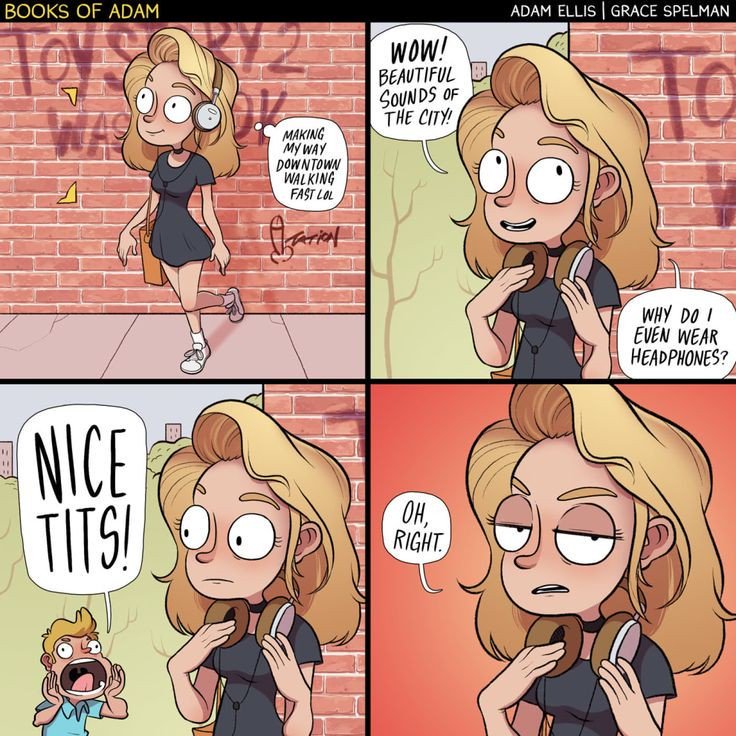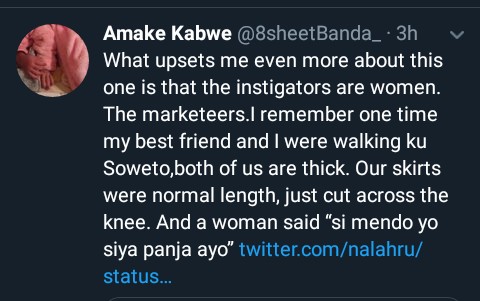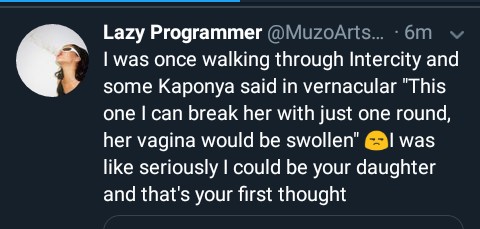About a week or so ago I shared a comic strip by Adam Ellis & Grace Spelman that addresses the catcalling women are subjected to when walking down the street. Catcalling has been defined as ‘To whistle or yell something sexually suggestive to a stranger, usually in passing.‘ A lot of women came out and said they related to it and shared their experiences.
For many women, catcalling is something they’ve been dealing with since they were preteens, as young as 10years old. (Yes, there is no age discrimination when it comes to this, any girl or woman can be subjected to this.) In some instances, catcalling evolves into physical sexual assault (with an ass grab here, or a boob grab there,) and not matter the form the assault takes, it is always uncomfortable, disrespectful and a lot of the time scary.

Catcalling is not a new phenomena. In Zambia, this act is perpetuated daily by “kaponyas” or call boys especially in markets, at bus stops and the cbd. This makes a trip into town for many women very uncomfortable. The cartoon itself and my initial thread came as a shock for some, men especially, who had no idea what kinds of things women endure. Catcalling is not a new phenomena. In case you missed the thread I’ll break it down a little more.
1. Skin tone. The most common topic that kaponyas or call boys, (because they’re usually the offenders) like to pick on from my experience is skin tone. I’ve heard the following statements: black shine (referring to dark skinned girls and women), zayellow/pawpaw (for light skinned women and girls) and many more. As if we need more help being insecure. Often, colorist statements bring attention to a part of you that you might otherwise not be bothered about. It’s easier to not be bothered if you only hear colorist statements on TV or see them in magazines, but when you hear things on the streets that you walk daily it’s easy to become self-conscious.
2. They like to talk about the woman or girls being “their size.” They say, “Aka nika size kanga” (This one is my size). What does that even mean? I was in town one time with my friend and as luck would have it, we passed a group of call boys. This one man wouldn’t stop badgering me and so I snapped at him and told him to ‘go back to his wife and stop bothering me’ Dejected, he decided to grab a bucket of dirty water (you know the kind they use to wash cars?) and try pour it on me. I had to run away to avoid getting the nastiest bath. In one of the responses to my thread, a woman narrates that she was told “I could put her in between pieces of bread.” Imagine, going through the day thinking that someone out there equates you to a piece of cold meat! Disturbing right? Such levels of entitlement to the objectification of women are unjust and demeaning.
3. Dressing. We’ve all heard of these men stripping women for wearing what they deemed indecent (yes this used to happen quite a lot), thankfully that trend died down. But such is the violation many women endured and still fear. If I’m going to town I have to wear something that is “town appropriate” lest I offend a man. Many women still can’t wear figure hugging clothes no matter how decent because they don’t want to put up with the unnecessary remarks. Unfortunately, it’s not just men who yell demeaning things. Many women have had to deal with horrible remarks from women too.

4. Boobs, Ass and other body bits. They talk about our bodies like we’re not there, (in that 2minute walk in front of them), because anatomy commentary is part of free speech to them. It’s disgusting, crude and a lot of the time frightening. Cat calling shouldn’t be a thing guys. The streets are already unsafe as hell without this struggle too. That’s one reason why we wear headphones and just about run past every group of guys we run into.

P. S Also we really need to discuss men’s coping mechanisms for rejection in all manner of situations. Because a lot of these reactions we get are not on. No is a complete sentence. Leave us to walk in peace.
Esnala Banda is a Zambian poet, writer, blogger and afro-creative passionate about women and sharing their stories. She is currently a freelance writer for Nkwazi Magazine, African Feminism, and Zambia Travel Magazine. You can follow her on twitter @nalahru
